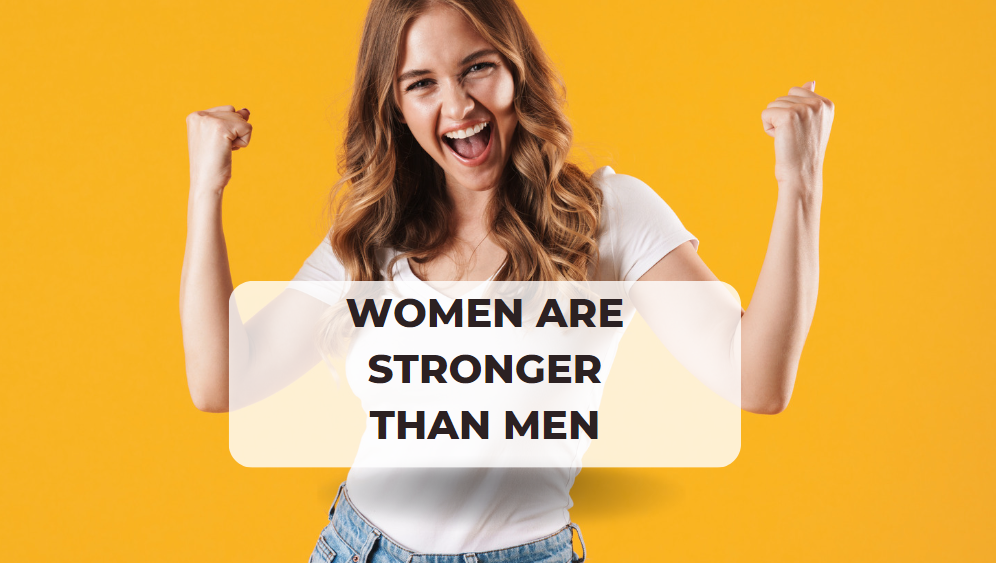It is not accurate to say that all women are stronger than men. Physical strength varies greatly among individuals of all genders, and it depends on various factors like genetics, nutrition, and level of physical activity. Additionally, strength can manifest in different ways, such as emotional, mental and social strength.
Instead, it is important to understand and acknowledge that society often imposes gender-based expectations and stereotypes, which can limit individuals from reaching their full potential, and that varies from one person to another. Gender-based discrimination and inequality can affect both men and women, but it is important to understand the unique ways in which women often face disadvantages, and work to change the systemic problem.
Here is an article that covers a more constructive and informative approach:
“Breaking Gender Stereotypes: Women’s Empowerment and Strength”
Gender stereotypes have long been a part of society, and they can have a significant impact on the way we perceive and treat ourselves and others. One of the most commonly held stereotypes is that women are weaker than men. This stereotype can be damaging, not only because it is not always true, but also because it can limit women’s potential and opportunities in life. But women’s strength is not limited to physical strength, women possess great emotional, mental and social strength. In this article, we’ll take a closer look at the ways in which women’s strength can be harnessed and celebrated, and how we can break down the barriers that hold them back.
Women’s Emotional Strength
One of the most important forms of strength that women possess is emotional strength. Women are often seen as the caretakers and nurturers of society, and this expectation can put a great deal of pressure on them to be strong emotionally. Women’s emotional strength can be seen in the way they navigate complex relationships, handle difficult life events and in the way they empathize with others.
Women have been traditionally expected to suppress their emotions and are taught to be more resilient and supportive, while men are encouraged to express their emotions freely. However, this societal expectation can also limit women’s potential and opportunities in life. By acknowledging and valuing women’s emotional strength, we can empower them to express their feelings and to take care of their mental health.
Women’s strength is also evident in their ability to build and maintain strong relationships. Women are often the primary caregivers in their families, and they are often the ones who hold their communities together. They also often face discrimination, harassment, and violence in the workplace, on the street and at home. Despite facing these additional challenges, women have been historically responsible for creating and sustaining social networks that have been crucial to their survival and the survival of their communities.
One way to celebrate and empower women’s social strength is to actively support and promote their leadership roles, not just within their families and communities, but also in the wider society. When women have a seat at the table, they can advocate for policies and programs that will benefit everyone, not just women.
Are all women weaker than men?
No, physical strength varies greatly among individuals of all genders, and it depends on various factors like genetics, nutrition, and level of physical activity. Additionally, strength can manifest in different ways, such as emotional, mental and social strength.
How can we acknowledge and celebrate women’s strength?
By valuing and promoting women’s emotional and social strength, as well as acknowledging their potential, we can empower them to express their feelings and advocate for their needs. We can also support their leadership roles and create opportunities for them .
